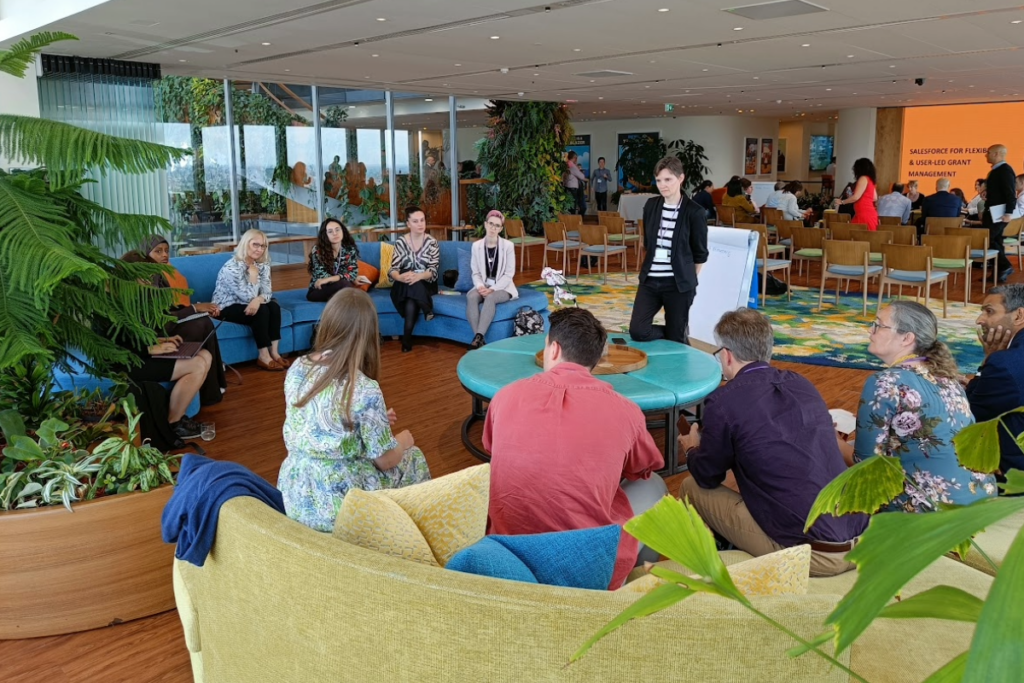Unlocking Success: Salesforce Nonprofit Trends Report
Every year, Salesforce issues a new edition of the Salesforce Nonprofit Trends Report. This year’s emphasises the importance of a powerful combination: technology and relationships. When nonprofits can grasp this combination, they can better drive their mission and make a greater overall impact.
Salesforce surveyed over 1600 senior nonprofit employees from seven countries, and used the data gleaned to show areas of growth and success, and to highlight gaps and deficiencies.
In the report (and in my summary), you’ll see plenty of references to “Digital Maturity”. Salesforce’s Digital Maturity Index scores nonprofits in their use of tech and data based on their responses to questions on a 1-5 scale.
Key Lessons from the Report
1. Tech Adoption Corresponds with Efficiency & Performance
Organisations that adopt tech-driven strategies are 30% more likely to exceed both their mission and volunteering goals. Digitally mature nonprofits use data to inform decision-making, reach new audiences, personalise communications, and forecast fundraising income. This digital maturity also helps to empower cultural change, deepen relationships with stakeholders, and deliver on their missions.
While it’s often assumed that “going digital” degrades relationships with donors, the data shows that digitally mature organisations have stronger connections with all stakeholder groups, including donors. While the personal touch still has its place, relationships at scale can be effectively handled online.

2. Employee Culture and Wellbeing Improved by Technology
When organisations have high digital maturity and a positive attitude towards change, employees report higher levels of motivation and a more positive overall culture. In fact, employees at nonprofits with high digital maturity have a 3.5 times higher motivation to work.
These organisations are also more likely to report a healthy workplace culture, with 77% of digitally mature nonprofits reporting a positive culture compared to only 46% of those with low digital maturity. This suggests that digital maturity has a noticeable impact on workplace culture and wellbeing.
3. Nonprofits can see Technology Benefits, but Struggle to Implement

The importance of technology in the sector is clear. 74% of organisations recognise it as a “need-to-have” or “must-have”. However, only 12% of nonprofits are highly digitally mature, showing the need for further investment in digital transformation.
Although charities are crying out for new tech, implementation is often hindered by budget constraints and competing priorities. Additionally, a lack of skilled personnel to implement and manage technologies, as well as the limited understanding of these technologies across organisations, is a further obstacle.
The challenge of keeping up with the ever-changing tech landscape is only intensified by nonprofits with misalignment between their organisational strategy and their daily realities. Investment in technology is needed to ensure that they can implement their strategies and move their missions forward.
4. Focus on Wellbeing to Reduce Turnover & Burnout
Nonprofits that take steps to improve the health and wellbeing of their staff enjoy increased motivation, optimism, and stronger stakeholder relationships.
There are significant challenges when it comes to diversity, equity, and inclusion (DEI), and taking authentic action is essential to ensure marginalised voices are represented in leadership roles. Less than half of surveyed nonprofits have taken recent DEI action, with only 40% enabling flexible or remote working and 28% promoting or hiring women and minorities to management positions.
Nonprofits must be aware of the disconnect between the perceptions of their staff’s workplace culture depending on seniority. A third of managers surveyed perceive their workplace culture to be toxic, while those on the senior leadership team or at the VP or director level have a more positive feeling.
Summary
Nonprofit organisations that are digitally mature can harness the power of technology to drive innovation, collaboration, productivity and wellbeing within their workplace culture. By prioritising relationships, these organisations can build a stronger foundation for success.
Those that have succeeded in tech adoption have seen significant results in their efforts to build relationships with stakeholders, achieve their goals, motivate their staff, and keep their commitments to diversity, equity, and inclusion initiatives.
Nonprofit organisations of all sizes and levels of digital maturity need to be prepared for change, which is the only certain thing in this rapidly evolving digital world. By using the latest insights, nonprofit leaders can ensure that their organisations are well-equipped to take on any challenge.






